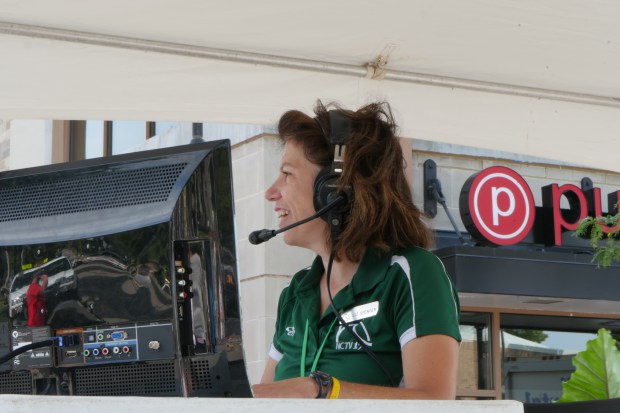The Portage Redevelopment Commission will act as the City Council’s piggy bank to pay the down payment and guarantee payment for a new firetruck.
“Essentially, it’s fair to say that it’s almost like cosigning a loan,” Mayor Austin Bonta said during the commission’s meeting on Dec. 19.
It’s part of a city plan to get back on track when it comes to replacing vehicles for the police and fire departments.
The commission will provide the $250,000 needed for the new tower truck and guarantee payment for the remainder, being paid back after the council issues a bond to borrow money for the truck, Redevelopment Director Dan Botich explained.
This way, no other fire department can swoop in and purchase the new truck before the council can finish arranging for final payment.
For new police and fire vehicles, it can take 12 to 18 months or more for delivery.
Bonta said the fire department’s tower truck is turning 28 years old, long past its life expectancy. “It’s a testament to the excellent maintenance that we have at the department that is running this long, but it’s not responsible to believe that it will somehow make it to 30 or 31 or 32,” he said.
“Best practice would be to be switching out the older ones as they get older, replacing them with new, and then have a planned life cycle,” Bonta said. That means replacing 10 police cars a year.
Getting caught up on fire department vehicles will take longer.
Botich said he’s an adjunct professor at Calumet College of St. Joseph in Whiting. Two years ago, one of his public safety management classes examined all the fire department’s fixed assets as a class project and put together a useful life for each piece of equipment to determine a replacement plan.
This year, his class did the same thing for the police department. It’s good practical experience for them, Botich said.
These students are getting practical experience.
Many of the students are Chicago cops. Considering the rivalry between police officers and firefighters, it was good for them to look at issues facing the fire department, Botich said.
A tower truck like Portage’s has a life expectancy of 20 years, he said. After that, repair expenses add up quickly, making it financially smarter to replace the truck after two decades of service.
The students’ recommendations for scheduling purchases extended to 2060, indicating even when equipment purchased in 2025 should be replaced, Botich said.
Bonta said scheduling equipment purchases depoliticizes the process.
“I don’t need to claim that there’s ever been campaign issues about whether to buy this vehicle or this, but what I’ve experienced and what I’ve learned is that in the past, and maybe every city goes through this at some point, there’s kind of been a lot of lobbying of buying a particular piece of equipment,” Bonta said. “I think that that’s normal in government, and the department head was trying to make sure that what their department needs gets into the budget or gets approved by the RDC or gets put into the bond, but making a plan like this that we can hang on to for years takes all of that politics out of that.”
It also allows the city to budget for purchases on a regular basis rather than scrambling to pay for them after a period of not doing so, he noted.
Maintenance costs vary, and nobody knows what they will be, Botich noted, but equipment purchases on a regular basis can reduce the number of unexpected repairs that pop up as equipment ages.
Doug Ross is a freelance reporter for the Post-Tribune.




